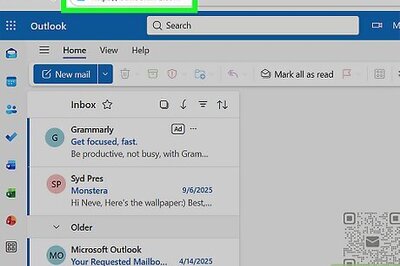
views
Yes Bank Ltd, India’s fifth largest private lender, was placed under moratorium on Thursday by the central government after considering an application by the Reserve Bank of India (RBI).
The RBI explained that in the absence of a credible revival plan, and in the interest of Yes bank’s depositors, it had no alternative but to apply to the Centre for imposing a moratorium on the private lender under Section 45 of the Banking Regulation Act, 1949. Accordingly, the central government imposed a moratorium effective from 6 pm on 5 March 2020 till 3 April 2020. Here are the 10 key restrictions imposed on Yes Bank for the moratorium period:
1) Yes Bank will not be allowed to pay depositors a sum exceeding Rs 50,000 lying in any savings, current or any other deposit account.
2) Even if a depositor maintains more than one account in the bank, the total amount payable from all the accounts together shall not exceed Rs 50,000.
3) For depositors having dues payable to Yes Bank in any manner, either as a borrower or surety, the withdrawal amount payable to them shall be made after adjusting the dues.
4) Any withdrawal by a depositor over Rs 50,000 will require RBI’s permission, but that too will not exceed Rs 5 lakh, or the actual amount in the account, whichever is less.
5) Starting 8 pm on Thursday, Yes Bank will not grant or renew any loan or advance, make any investment, incur any liability or agree to disburse any payment in discharge of its liabilities and obligations except for payments towards bills already received.
6) Yes Bank will not enter into any agreement or compromise, or transfer or otherwise dispose of any of its properties or assets.
7) Yes Bank is only allowed to incur expenditures like salaries of employees, rent, rates and taxes, printing, stationery, legal expenses not exceeding Rs 50,000 in each case, or any other expenses necessary for carrying on its day-to-day administration.
8) Yes Bank has also been allowed to release or deliver goods or securities which have been pledged, hypothecated or mortgaged to it against loans availed by the borrowers.
9) RBI supersedes Yes Bank’s board with effect from 5 March for a period of 30 days.
10) Prashant Kumar, former deputy managing director and CFO of State Bank of India, has been appointed as the administrator of Yes Bank.




















Comments
0 comment